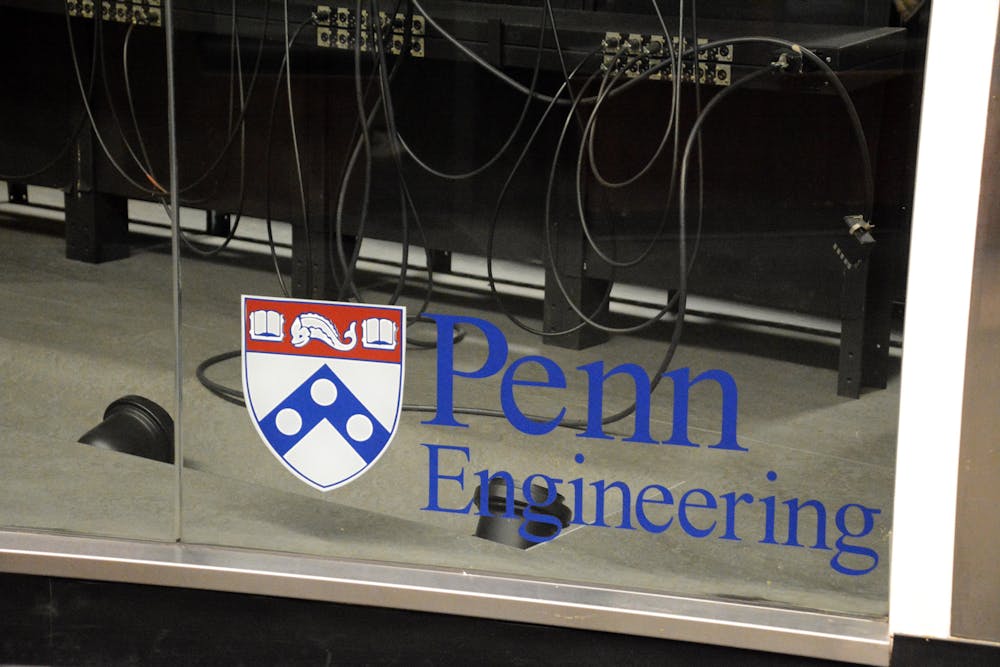Artificial intelligence is a topic we can’t seem to get enough of. From frequent announcements regarding policies within classrooms to endless professors and visiting scholars weighing in on the unprecedented effect large language models will have on our lives, I’m sure we’ve all discussed to death how revolutionary ChatGPT has become for college students.
Many of us have even had the chance to firmly establish positions on whether the University should embrace the technology wholeheartedly or put in place safeguards to prevent it from eroding the value of a college education, but up until now, the vast majority of conversations have been on a non-technical level.
That all potentially changed in this past month when Penn announced their first Bachelor of Science in Engineering in AI. Thankfully for us, Penn has chosen to launch this interdisciplinary degree at the “optimal time” to “create a society where AI isn’t just a tool, but a fundamental force for good to advance society.” But at what cost? To what extent should we be using college as an opportunity to hyperfocus on not just a certain field (computer science), but a field within a field? Majoring in AI panders to the pre-professionalism Penn is known for and removes many of the foundational elements of the field that underlie innovation.
In an interesting recent LinkedIn post, David Magerman pondered the implications of a university building complete undergraduate curriculums around a “modern business tool that is a niche application of computer science, diverting students away from a broad education in computer science.” He went on to ask pointedly, “What's next? A Bachelor of Arts in Blogging from the Annenberg School? A Wharton BS in Quantitative Trading?”
As a current computer science major, I’ll admit the AI curriculum looks fascinating. There is such an array of eye-catching electives (from Deep Generative Models to Natural Language Processing) that, if I were doing my degree all over again, I suspect I would have been swayed to switch into the major. But as a recently graduated computer and information science friend put it, the degree “seems like the cool parts of CIS” without the heavier basics like operating systems, computer systems, and physics — building blocks on the entire computer domain.
The question I ask myself is whether artificial intelligence is really enough of an independent field that it transcends computer science and necessitates its own major. Is the relatively new field of AI established enough, broad enough, and unique enough such that the skills we gain through taking just those mostly career-focused courses today will undoubtedly remain relevant in 30 years and justify the $84,600 a year sticker price? I simply wonder how likely it may be that AI will become so unrecognizable in 20 or even 10 years, given its breakneck pace of innovation, that students may have wished that their majors in college focused on more fundamental elements of the field that innovators keep turning back to for insight.
Aside from long-term career effectiveness an AI degree would have compared to computer science or electrical engineering, Penn is known for its pre-professional student body, and this new major shows signs of that sentiment leaking into the curriculum as well. In contrast to the Penn Integrates Knowledge professorships that bring in academic leaders who deeply understand multiple fields to better spark insight between them, this new major filters various courses of study to pluck out the elements we find valuable today.
In this line of thinking, maybe we should consider the true value of a groundbreaking Wharton degree in quant trading that would promise to “sculpt the financial moguls of tomorrow” with unparalleled prowess in algorithmic trading strategies and quantitative analysis.
All this is to say, I immediately understand the value the current AI concentration within the larger CIS curriculum has. And I appreciate the Ph.D. programs that take students to a higher level of understanding, once they’ve taken the time in their undergraduate training to build the broad foundations. I simply remain curious of the true value an AI undergraduate degree offers us as students over other forms of study within the field and the certain level of indulgence in pre-professionalism that it plays into on Penn’s campus. I truly hope that I’m proven wrong.
AKIVA BERKOWITZ is an Engineering junior studying computer science from Silver Spring, Md. His email is akivab@sas.upenn.edu









